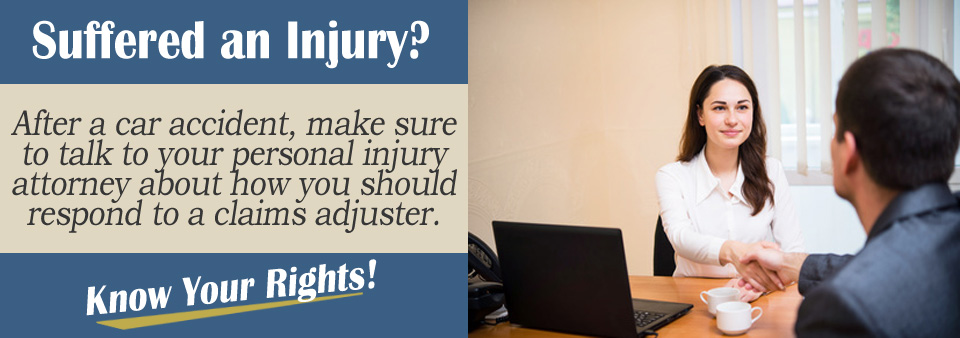When you have had an accident and you have suffered injuries and your vehicle has been damaged you may be naturally angry and frustrated if you were not responsible for the accident.
It is quite possible that you may be able to obtain compensation by filing a personal injury claim with the help of a personal injury attorney as long as proof of what happened and who was at fault is available.
Any such claim will involve contact with the defendant’s claims adjuster, who may be persistent in trying to obtain information from you in the hope that you make a mistake or reveal inconsistencies in your account of the accident. Here are some tips to help you through such an encounter.
Tip#1: Remain Calm and Polite During Your First Encounter
Even if you feel angry and frustrated about the accident, there is no value in venting your feelings against the claims adjuster. In fact, you may do more harm than good. If you allow your feelings to take over, you may say something that you regret later n when you calm down.
The claims adjuster is doing a job, but is not on your side. It is best to remain as calm and polite as possible and think carefully about each question you might ask or before you make any answers unless you make a mistake or reveal information which can be used later against you.
Tip#2: Ask the Person Contacting You to Identify Themselves
Before you answer any questions, make sure you have the details of the person’s name, telephone number, which company they are working for, who their client is and some proof of who they are. If the person is unable or unwilling to do this, politely tell them that you are unable to communicate with them until they do.

Tip#3: Do Not Give Any Detailed Information About the Accident
You will be asked quite detailed questions, but you are not obliged to reveal too much. In fact, if you are not feeling confident about the procedure, refer the adjuster to your own attorney if you have any. If you don’t have one, make sure you contact an attorney to discuss your options first.
If you feel reasonably confident, just provide basic details such as:
- your name;
- your contact details;
- your employer;
You don’t need to say any more about your job or your income. You may give very basic details of the accident such as:
- when it took place;
- where it took place;
- the vehicles involved;
- what happened.
Resist getting into any general overtures of friendly conversation. You may leave things out or say things that you didn’t mean or shouldn’t have said. Let the claims adjuster know that you are talking to your attorney and will be considering a well calculated claim and your attorney will get in touch “later.”
Tip#4: Do Not Ask to Settle the Claim
It is not advisable to ask questions about a possible compensation payment. You may be seduced into settling for an amount which is offered which is far less than that negotiated by your attorney.
Tip#5: Talk to Your Personal Injury Attorney About How You Should Respond to a Claims Adjuster
It is not easy negotiating with an at-fault driver’s insurer all on your own. They are better and more experienced at negotiating than you are. You may even have your claim denied through saying the wrong thing.
It is advisable to contact a personal injury attorney about a personal injury claim you are considering they will assess your chances of success and negotiate with the insurance adjuster and defendant on your behalf. Ask them for more specific advice about how to respond if the adjuster calls you privately.